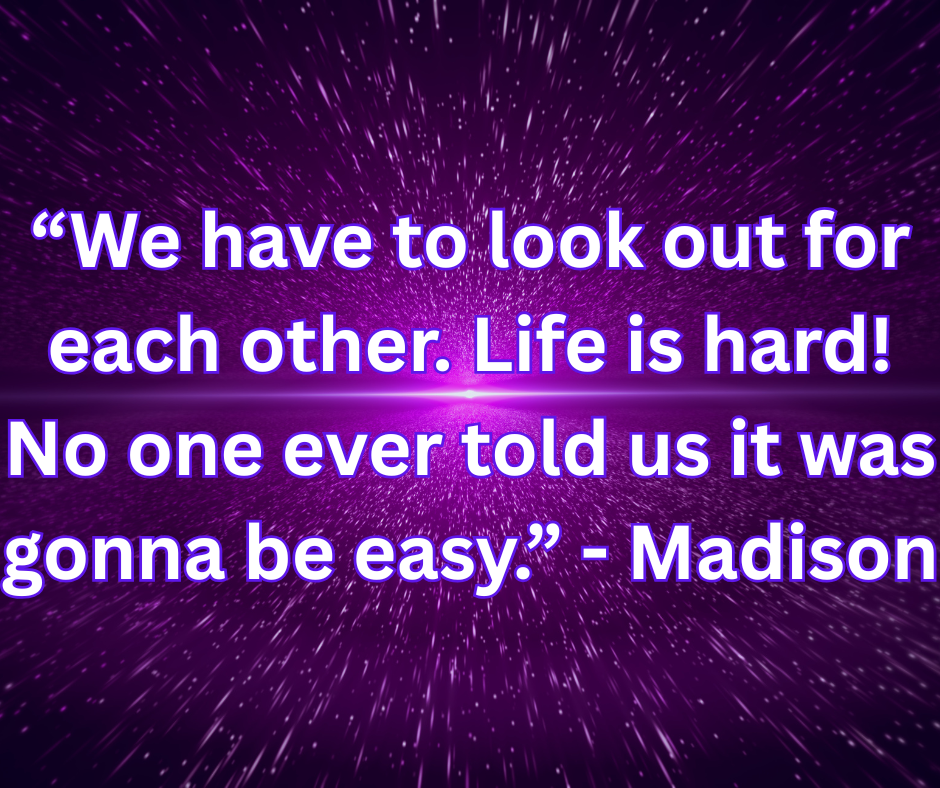
In this post, we delve into the remarkable journey of Madison, a woman who transformed her life from battling mental health issues and opioid addiction to becoming a beacon of hope and a leader at Pyramid Healthcare. Madison's story is one of resilience, accountability, and the power of community support. We explore the critical moments and resources that fueled her recovery, offering inspiration to anyone facing similar challenges. If you're intrigued by stories of personal triumph and the transformative power of recovery, be sure to listen to the related episode, Podathon For Recovery: Madison’s Road to Recovery, where Madison shares her experiences in her own words.
Madison's Inspiring Transformation
Madison's journey is nothing short of inspiring. From the depths of addiction and legal troubles to a position of leadership and advocacy, her story highlights the potential for change that lies within each of us. It's a testament to the power of seeking help, embracing accountability, and finding purpose in service to others. This blog post explores the key turning points in Madison's life and the factors that contributed to her successful recovery.
Early Struggles with Mental Health
Madison's struggles began long before her addiction took hold. As a preteen, she grappled with mental health challenges, feeling isolated and alone. These early experiences of emotional distress created a vulnerability that would later contribute to her susceptibility to substance abuse. It's crucial to recognize that mental health issues often underlie addiction, and addressing these underlying issues is paramount for lasting recovery. This sense of isolation is a common thread for many who eventually struggle with addiction, highlighting the importance of early intervention and accessible mental health resources for young people.
The Progression into Opioid Addiction
The descent into opioid addiction began during a difficult period in Madison's life, specifically an abusive relationship in high school. This tumultuous time served as a catalyst for her rapid progression into opioid use. What started as a way to cope with emotional pain quickly spiraled into a full-blown addiction, demonstrating the insidious nature of substance dependence. This highlights how trauma and difficult life events can serve as triggers for substance abuse, emphasizing the need for trauma-informed care in addiction treatment.
High-Functioning Addiction and Legal Consequences
For a time, Madison managed to maintain a semblance of normalcy, navigating college while battling her addiction. This period of "high-functioning" addiction masked the severity of her problem, but it was unsustainable. Eventually, the consequences of her addiction caught up with her, leading to a series of legal troubles, including approximately 20 arrests in three years. This phase of her life illustrates how addiction can permeate every aspect of a person's life, despite outward appearances of success. It also underscores the importance of recognizing the signs of addiction, even when someone appears to be managing their life effectively.
The Turning Point: Seeking Help
The turning point in Madison's story came when she found herself in a stark and sobering situation: detoxing in a jail cell. This experience forced her to confront the reality of her addiction and the devastation it was causing. It was in this moment of despair that she made the courageous decision to ask for help. This act of reaching out marked the beginning of her journey toward recovery. Detoxing in such a harsh environment emphasizes the desperate circumstances that often precede the decision to seek help, and it underscores the need for accessible and compassionate treatment options.
The Role of Structure, Aftercare, and Accountability
Madison's recovery was not a solitary endeavor; it was supported by a network of structured programs and dedicated individuals. Treatment played a vital role, providing her with the tools and support she needed to address her addiction. Aftercare was equally important, helping her to maintain her sobriety and navigate the challenges of early recovery. The Harford County Drug Court program, with Judge "Kerry" and Angela Royer, provided essential accountability, ensuring that she stayed on track and continued to progress in her recovery. The combination of structure, aftercare, and accountability proved to be a winning formula for Madison. The specific mention of individuals involved highlights the impact that caring professionals can have on an individual's recovery journey.
Service as a Recovery Engine
One of the most powerful components of Madison's recovery has been her commitment to service. Starting as a Recovery Support Specialist (RSS) and progressing to leadership roles within treatment organizations, she has dedicated her life to helping others find their path to sobriety. This dedication to service not only benefits those she helps but also reinforces her own recovery. By giving back and making a difference in the lives of others, Madison has found a sense of purpose and fulfillment that sustains her long-term recovery. This emphasizes the therapeutic value of service and its role in maintaining long-term sobriety. Her journey from RSS to leadership exemplifies the potential for growth and positive change within the recovery community.
Parenting and Taking Responsibility
Madison's journey to recovery also involved taking responsibility for her role as a parent. As she navigated her own healing process, she learned the importance of setting boundaries and making choices that prioritized her child's well-being. This aspect of her story highlights the ripple effect of addiction and recovery, demonstrating how it impacts not only the individual but also their family and loved ones. It emphasizes the importance of addressing family dynamics and providing support to those affected by addiction.
The Importance of Purpose, Kindness, and Community
Madison attributes her sustained recovery to a combination of factors, including finding purpose, practicing kindness, and engaging in community. Having a sense of purpose provides motivation and direction, while acts of kindness foster connection and empathy. Community support offers a sense of belonging and shared experience, which is essential for long-term sobriety. These three elements form a strong foundation for a fulfilling and meaningful life in recovery. The emphasis on kindness and community underscores the importance of human connection and social support in the recovery process.
Resources Mentioned in Madison's Journey
Throughout her journey, Madison utilized a variety of resources that played a crucial role in her recovery. These resources include:
- Donate to Rage Against Addiction
- Harford County Drug Court (Judge “Kerry,” Angela Royer)
- "Karen" treatment center in Pennsylvania (inpatient program referenced)
- Recovery Centers of America (alumni follow-up by Vince)
- Pyramid Healthcare (Madison’s current organization/role)
- Towson University (Madison’s alma mater)
These resources demonstrate the diverse range of support systems and programs available to individuals seeking recovery. Access to these resources can make a significant difference in the success of one's recovery journey.
Rage Against Addiction and How to Support
A significant supporter of Madison's journey and a key organization in the fight against addiction is Rage Against Addiction. Rage Against Addiction is a non-profit organization dedicated to connecting addicts and their families with the resources they need. You can support their vital work by donating to their cause or volunteering your time. Visit their website to learn more about their programs and how you can get involved. Supporting organizations like Rage Against Addiction is crucial in addressing the addiction crisis and providing hope to those who are struggling.
Hope and Inspiration for Recovery
Madison's story serves as a powerful reminder that recovery is possible, even in the face of seemingly insurmountable challenges. Her journey from addiction to advocacy is a testament to the human capacity for change and the transformative power of hope. If you or someone you know is struggling with addiction, remember that help is available, and recovery is within reach. Never give up on the possibility of a brighter future. Madison's journey exemplifies that with the right support, accountability, and a commitment to service, lasting recovery is attainable.
In conclusion, Madison's journey is a testament to the resilience of the human spirit and the transformative power of recovery. From early struggles with mental health to a life dedicated to helping others, her story is one of hope and inspiration. To hear more about Madison's experiences and insights, be sure to check out the Podathon For Recovery: Madison’s Road to Recovery episode. You'll gain a deeper understanding of her journey and find encouragement for your own path to healing.










